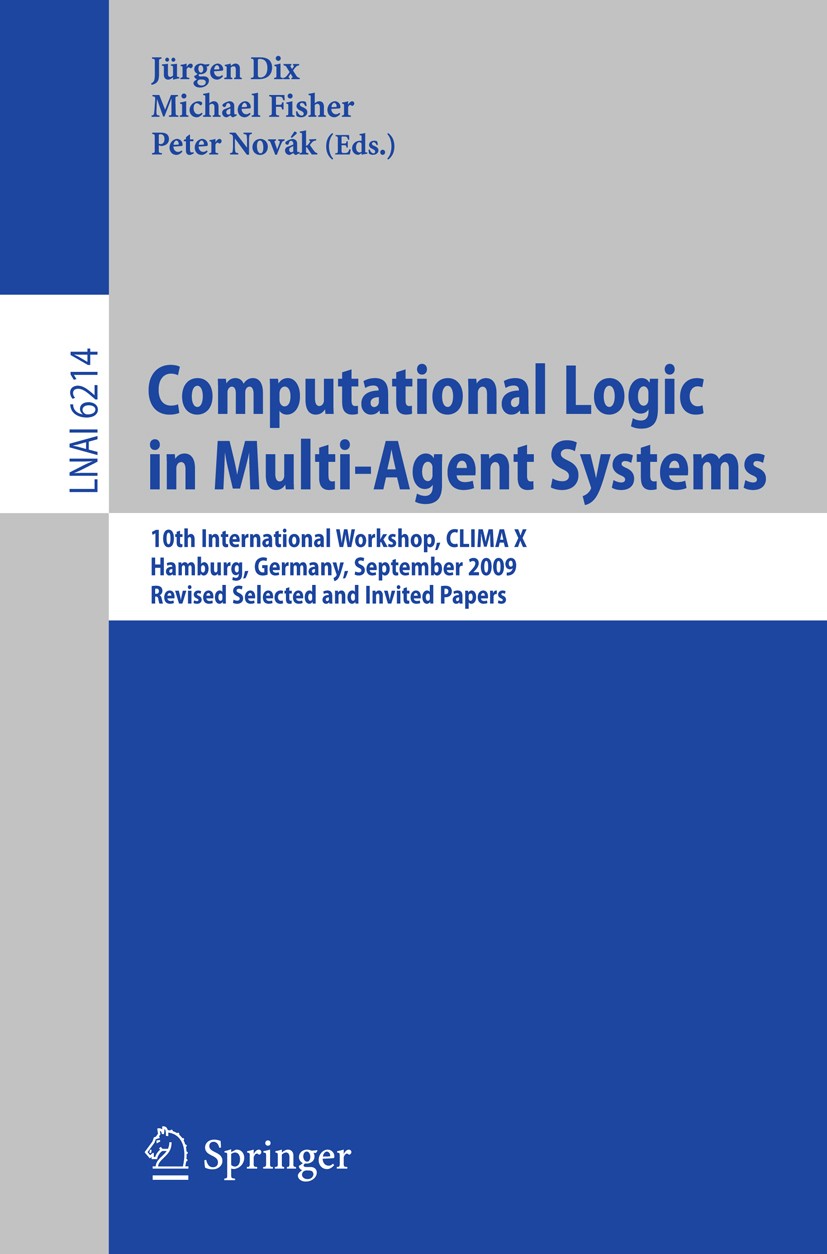| 书目名称 | Computational Logic in Multi-Agent Systems |
| 副标题 | 10th International W |
| 编辑 | Jürgen Dix,Michael Fisher,Peter Novák |
| 视频video | http://file.papertrans.cn/233/232631/232631.mp4 |
| 概述 | High quality selected papers.Unique visibility.State of the art research |
| 丛书名称 | Lecture Notes in Computer Science |
| 图书封面 |  |
| 出版日期 | Conference proceedings 2010 |
| 关键词 | AI logics; BDI agents; agent communication; agent cooperation; agent negotiation; agent planning; argument |
| 版次 | 1 |
| doi | https://doi.org/10.1007/978-3-642-16867-3 |
| isbn_softcover | 978-3-642-16866-6 |
| isbn_ebook | 978-3-642-16867-3Series ISSN 0302-9743 Series E-ISSN 1611-3349 |
| issn_series | 0302-9743 |
| copyright | Springer Berlin Heidelberg 2010 |
 |Archiver|手机版|小黑屋|
派博传思国际
( 京公网安备110108008328)
GMT+8, 2026-1-20 11:10
|Archiver|手机版|小黑屋|
派博传思国际
( 京公网安备110108008328)
GMT+8, 2026-1-20 11:10


